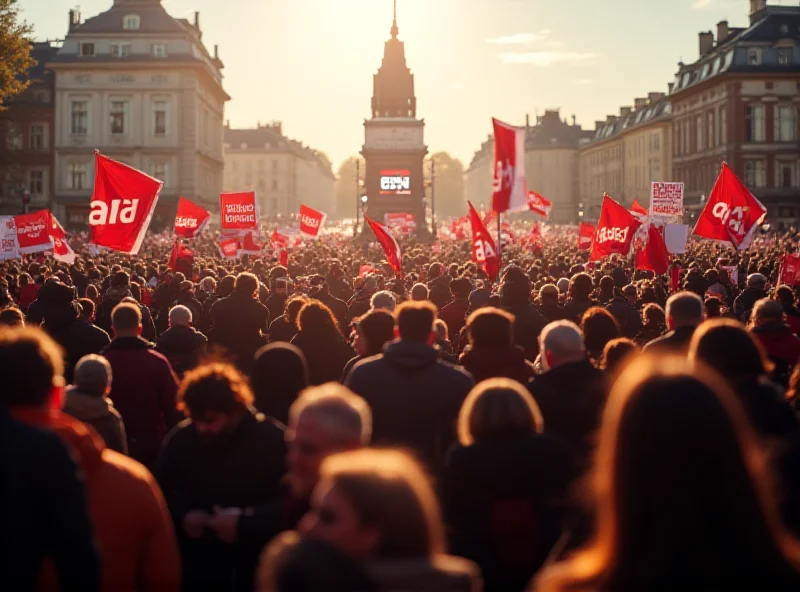The political landscape is shifting both in the United States and Germany, with recent developments impacting migration policies and party dynamics. From changes to air travel regulations for undocumented migrants in the US to surprising electoral outcomes in Germany, the political climate is anything but static.
US Restricts Air Travel for Undocumented Migrants
The United States has announced a significant policy change regarding air travel for undocumented migrants. Previously, individuals without standard immigration documents could use identification provided by the CBP One app to board domestic flights.  Now, these individuals will only be permitted to board planes for the purpose of "self-deportation." This change has already drawn criticism, particularly from Republicans who view the CBP One app with suspicion.
Now, these individuals will only be permitted to board planes for the purpose of "self-deportation." This change has already drawn criticism, particularly from Republicans who view the CBP One app with suspicion.
This decision reflects ongoing debates about immigration policy and border security within the US. The CBP One app, intended to streamline the processing of asylum seekers and migrants at the border, has become a focal point of political contention. The new restriction on air travel is likely to further fuel these debates and impact the lives of undocumented migrants living in the United States.
Political Upheaval in Germany: AfD Gains Ground
Germany is experiencing its own share of political upheaval. In Gelsenkirchen, a city historically known as a "red stronghold" for left-leaning parties, the right-wing AfD (Alternative für Deutschland) has emerged as the leading recipient of second votes. This shift is attributed to a combination of factors, including social data, poverty migration, and perceived failures of the SPD (Social Democratic Party).  The AfD's success in Gelsenkirchen signals a significant change in the political landscape of the region.
The AfD's success in Gelsenkirchen signals a significant change in the political landscape of the region.
The SPD itself is facing internal turmoil following a historic defeat in recent legislative elections, where it garnered only 16.5% of the vote – its worst performance since 1945. Voices within the party are criticizing the lack of renewal among its leadership. This internal strife adds to the challenges facing the SPD as it navigates a rapidly changing political environment.
Coalitions and Economic Policy
Despite the challenges, potential coalitions are being explored to address Germany's economic needs. A "black-red coalition" between the Union (CDU/CSU) and the SPD is being discussed as a way to revitalize the economy and generate new funds for investments. Interestingly, there appears to be considerable agreement between the two parties on several key economic policy issues. How this potential coalition will address the concerns that led to the AfD's rise remains to be seen.
Adding to the complex political scene, The Left party experienced surprising success in the recent Bundestag election, gaining thousands of new members.  Key figures like Michael Müller and Janine Wissler celebrated on election night in Frankfurt Römer. The party intends to capitalize on this momentum in upcoming municipal elections in Hessen.
Key figures like Michael Müller and Janine Wissler celebrated on election night in Frankfurt Römer. The party intends to capitalize on this momentum in upcoming municipal elections in Hessen.
"The Left party performed surprisingly well in the Bundestag election and is winning thousands of new members."
These developments across Germany and the US highlight a period of significant political change, with potential long-term consequences for both countries.

